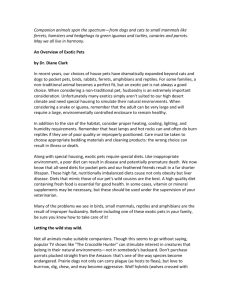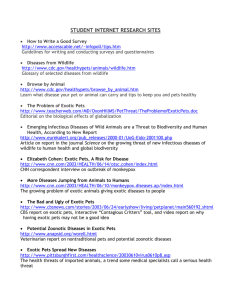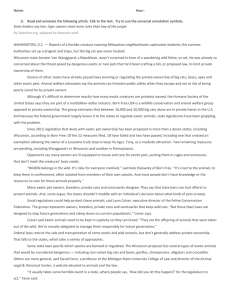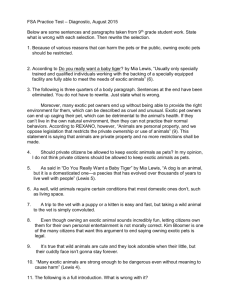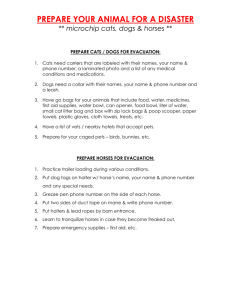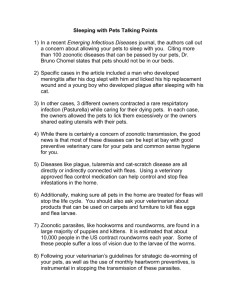Hot Topic with Question: Wild Animals
advertisement
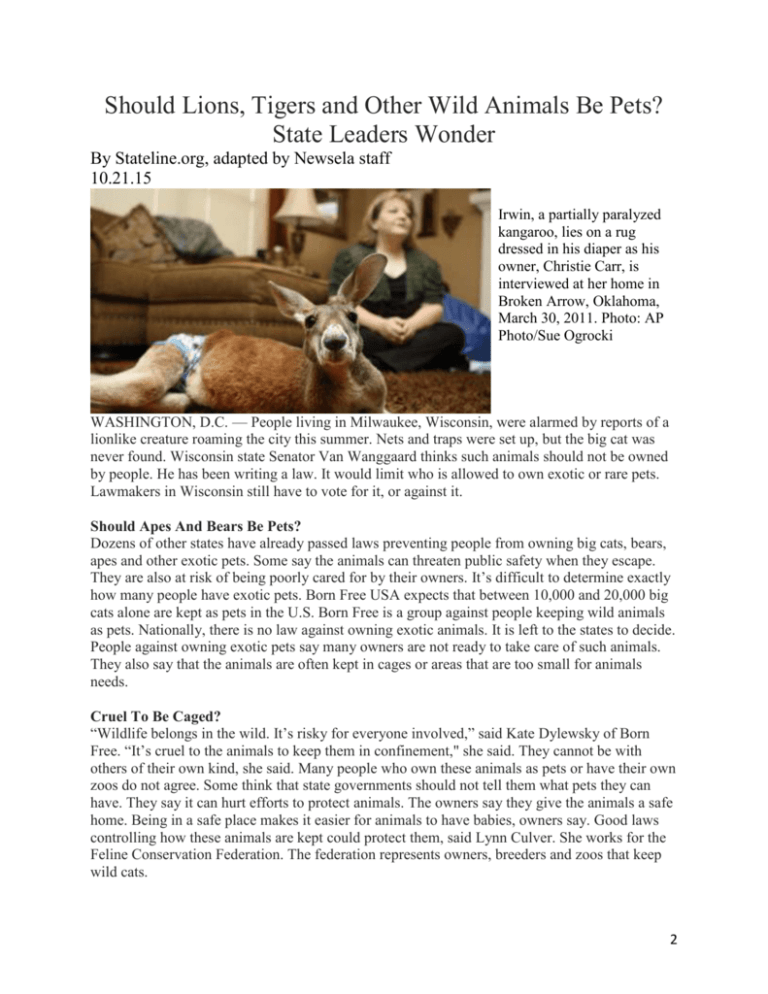
Should Lions, Tigers and Other Wild Animals Be Pets? State Leaders Wonder By Stateline.org, adapted by Newsela staff 10.21.15 Irwin, a partially paralyzed kangaroo, lies on a rug dressed in his diaper as his owner, Christie Carr, is interviewed at her home in Broken Arrow, Oklahoma, March 30, 2011. Photo: AP Photo/Sue Ogrocki WASHINGTON, D.C. — People living in Milwaukee, Wisconsin, were alarmed by reports of a lionlike creature roaming the city this summer. Nets and traps were set up, but the big cat was never found. Wisconsin state Senator Van Wanggaard thinks such animals should not be owned by people. He has been writing a law. It would limit who is allowed to own exotic or rare pets. Lawmakers in Wisconsin still have to vote for it, or against it. Should Apes And Bears Be Pets? Dozens of other states have already passed laws preventing people from owning big cats, bears, apes and other exotic pets. Some say the animals can threaten public safety when they escape. They are also at risk of being poorly cared for by their owners. It’s difficult to determine exactly how many people have exotic pets. Born Free USA expects that between 10,000 and 20,000 big cats alone are kept as pets in the U.S. Born Free is a group against people keeping wild animals as pets. Nationally, there is no law against owning exotic animals. It is left to the states to decide. People against owning exotic pets say many owners are not ready to take care of such animals. They also say that the animals are often kept in cages or areas that are too small for animals needs. Cruel To Be Caged? “Wildlife belongs in the wild. It’s risky for everyone involved,” said Kate Dylewsky of Born Free. “It’s cruel to the animals to keep them in confinement," she said. They cannot be with others of their own kind, she said. Many people who own these animals as pets or have their own zoos do not agree. Some think that state governments should not tell them what pets they can have. They say it can hurt efforts to protect animals. The owners say they give the animals a safe home. Being in a safe place makes it easier for animals to have babies, owners say. Good laws controlling how these animals are kept could protect them, said Lynn Culver. She works for the Feline Conservation Federation. The federation represents owners, breeders and zoos that keep wild cats. 2 Wild Animals In Ohio Town However, Culver says laws preventing people from owning exotic animals are wrong. She said exotic animals need to be kept in captivity, not in the wild, so they can breed. “They are the offspring of animals that were taken out of the wild." She said it is the responsibility of people to take care of them "for future generations.” An event in Zanesville, Ohio resulted in laws being changed. A man released more than 50 big cats, bears, primates and wolves in 2011. Police and animal control officers tried to use tranquilizers, but couldn’t control the situation. They were forced to kill most of the animals. At the time, Ohio had no law dealing with dangerous exotic pets. After the Zanesville situation, buying exotic pets was no longer allowed, starting in 2012. People who already owned such pets were allowed to keep them. However, they had to get permits and follow safety and care rules. Connecticut Chimp Attack The law in Connecticut was changed in 2009. Since then, people have not been allowed to own some primates. The law was changed after a woman was seriously injured by her friend’s 200pound pet chimp. Wisconsin is one of five states with no law about people owning dangerous pets, says Born Free. Fourteen states make people get licenses or permits. Twelve allow ownership of some exotic animals but do not allow others. And 19 have do not allow several species. However, such laws often fail to get passed. Lawmakers often vote against them. This year laws failed in six states, said Born Free. The states were Indiana, Kansas, North Carolina, Oklahoma, Virginia and Wyoming. “In some of these states, it’s very hard to have a conversation about it,” said Dylewsky of Born Free. Week 5, Day 1: Read, Annotate (write in the margins: questions, circle unknown words, connections, main idea of each paragraph, etc. ), and Summarize the article. Week 5, Day 2: Re-read the article, Annotate using a new color to find evidence to answer the question, and Cite evidence from the article to support you answer. Write Multiple Paragraphs. Should wild animals be pets? Use at least three pieces of evidence from the article to support your opinion. 2

